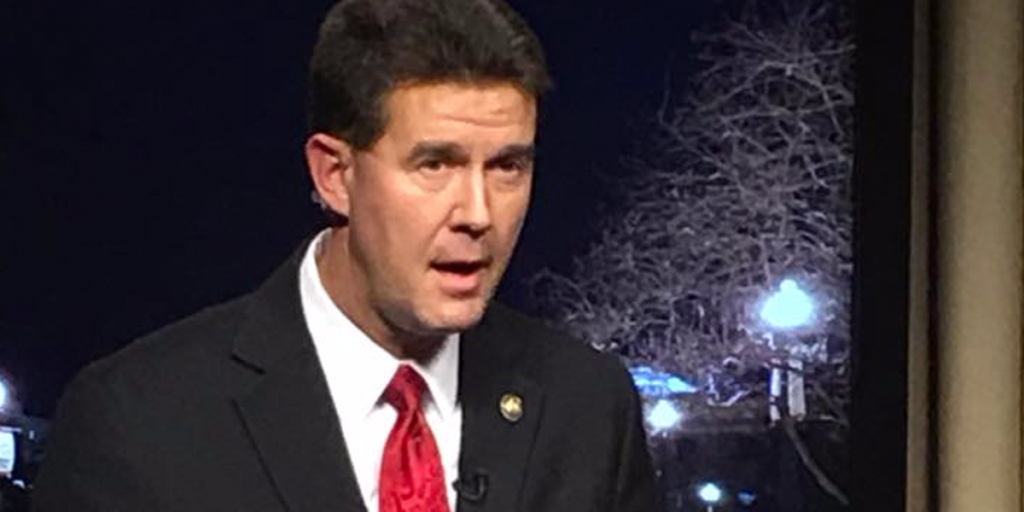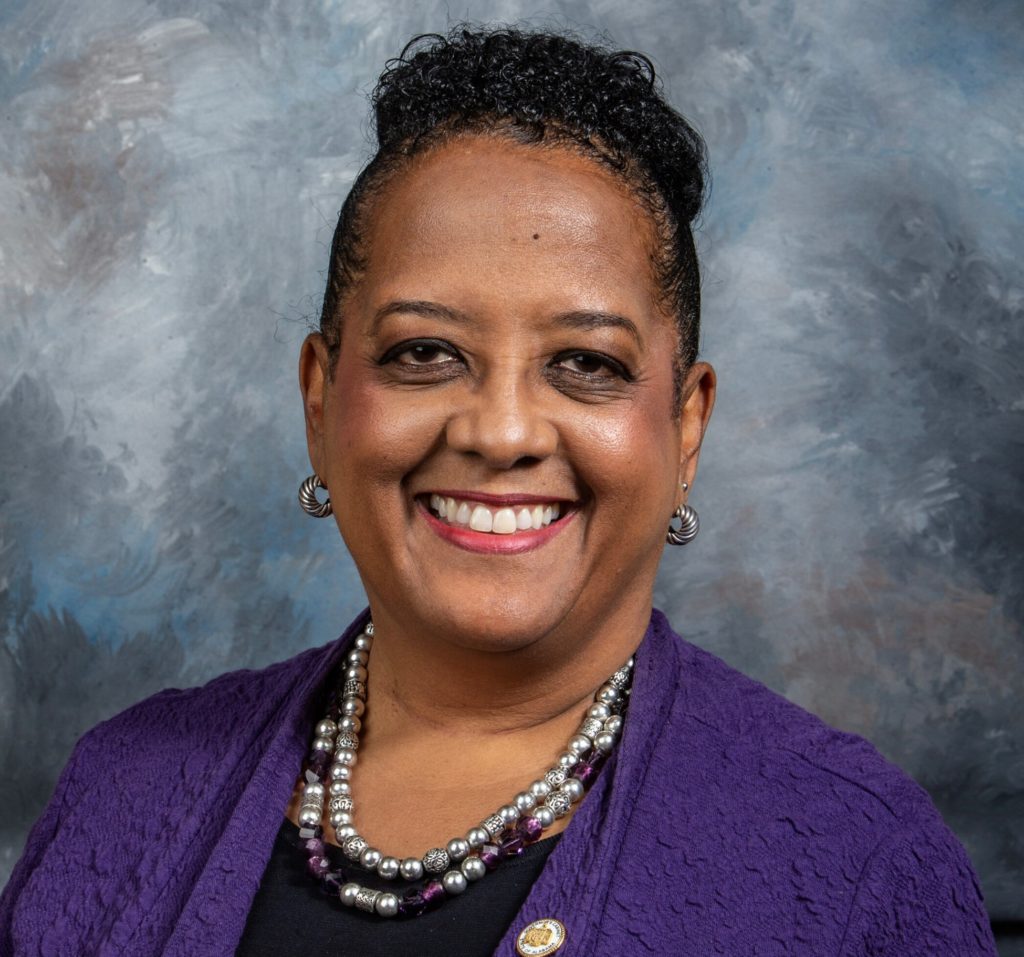Joe Biden signs 2023 Defense Authorization Act

President Joe Biden signed the Fiscal Year 2023 National Defense Authorization Act (FY23 NDAA) into law on Friday, following its passage by both the U.S. Senate and U.S. House of Representatives. “Today, I have signed into law H.R. 7776, the “James M. Inhofe National Defense Authorization Act for Fiscal Year 2023” (the “Act”),” President Biden said in a statement. “The Act authorizes fiscal year appropriations for the Department of Defense, for Department of Energy national security programs, and for the Department of State, Department of Homeland Security, and the Intelligence Community. The Act provides vital benefits and enhances access to justice for military personnel and their families, and includes critical authorities to support our country’s national defense, foreign affairs, and homeland security.” Senator Tommy Tuberville voted in favor of the NDAA. “The importance of passing a strong NDAA cannot be overstated,” said Sen. Tuberville. “To maintain our role as the world’s leading superpower, we must also maintain the world’s most modern, prepared, and lethal military. Bolstering our force and military capabilities ensures we are ready to defeat any enemy at any time. I am proud of my work on the Senate Armed Services Committee to draft legislation that gives the military the tools it needs to keep our country safe.” There are many provisions in the FY23 NDAA that Tuberville supported that directly impact Alabama. “Alabama has been at the forefront of America’s national defense network for decades,” Tuberville said. “More than 50,000 Alabamian service members and Department of Defense civilian officials work around the clock to defend the United States. The FY23 NDAA expands resources for our state to continue that work and provides for crucial updates and additions to America’s military.” This year’s NDAA includes many significant funding authorizations for Alabama’s military bases and defense installations. As a Senate Armed Services Committee member, Senator Tuberville ensured Alabama’s defense priorities were included in the legislation. The 2023 NDAA included a controversial provision that overrides Secretary of Defense Lloyd Austin’s directive that all members of the U.S. armed forces, including members of the National Guard and reserves, get the COVID-19 vaccine; however, the act stopped short of requiring that the armed forces have to reinstate service members who were discharged due to their refusal to obey the command to get the vaccine. The NDAA passed Congress with bipartisan support. The military and defense industries play a major role in the Alabama economy. All of the items in the FY2023 NDAA were fully funded in the FY2023 omnibus spending bill that also passed the U.S. Congress before the Christmas holiday. To connect with the author of this story, or to comment, email brandonmreporter@gmail.com.
Supreme Court keeps immigration limits in place indefinitely

The Supreme Court is keeping pandemic-era limits on immigration in place indefinitely, dashing hopes of immigration advocates who had been anticipating their end this week. In a ruling Tuesday, the Supreme Court extended a temporary stay that Chief Justice John Roberts issued last week. Under the court’s order, the case will be argued in February, and the stay will be maintained until the justices decide the case. The limits, often referred to as Title 42 in reference to a 1944 public health law, were put in place under then-President Donald Trump at the beginning of the pandemic. Under the restrictions, officials have expelled asylum-seekers inside the United States 2.5 million times and turned away most people who requested asylum at the border on grounds of preventing the spread of COVID-19. Immigration advocates sued to end the policy, saying it goes against American and international obligations to people fleeing to the U.S. to escape persecution. They’ve also argued that the policy is outdated as coronavirus treatments improve. The Supreme Court’s decision comes as thousands of migrants have gathered on the Mexican side of the border, filling shelters and worrying advocates who are scrambling to figure out how to care for them. “We are deeply disappointed for all the desperate asylum seekers who will continue to suffer because of Title 42, but we will continue fighting to eventually end the policy,” said Lee Gelernt, a lawyer with the American Civil Liberties Union, which had been arguing to end Title 42′s use. The ruling Tuesday said specifically that the Supreme Court will review the issue of whether the states have the right to intervene in the legal fight over Title 42. Both the federal government and the immigration advocates have argued that the states waited too long to intervene and even if they hadn’t waited so long, that they don’t have sufficient standing to intervene. In a dissent, Justices Neil Gorsuch and Ketanji Brown Jackson said that even if the court were to find the states have the right to intervene and Title 42 was lawfully adopted “…. the emergency on which those orders were premised has long since lapsed.” The judges said the “current border crisis is not a COVID crisis.” “And courts should not be in the business of perpetuating administrative edicts designed for one emergency only because elected officials have failed to address a different emergency. We are a court of law, not policymakers of last resort,” the justices wrote. White House press secretary Karine Jean-Pierre said Tuesday that the Biden administration “will, of course, comply with the order and prepare for the Court’s review.” “At the same time, we are advancing our preparations to manage the border in a secure, orderly, and humane way when Title 42 eventually lifts and will continue expanding legal pathways for immigration,” Jean-Pierre added. “Title 42 is a public health measure, not an immigration enforcement measure, and it should not be extended indefinitely.” In November, a federal judge sided with advocates and set a December 21 deadline to end the policy. Conservative-leaning states appealed to the Supreme Court, warning that an increase in migration would take a toll on public services and cause an “unprecedented calamity” that they said the federal government had no plan to deal with. Roberts, who handles emergency matters that come from federal courts in the nation’s capital, issued a stay to give the court time to more fully consider both sides’ arguments. The federal government asked the Supreme Court to reject the states’ effort while also acknowledging that ending the restrictions abruptly would likely lead to “disruption and a temporary increase in unlawful border crossings.” The precise issue before the court is a complicated, largely procedural question of whether the states should be allowed to intervene in the lawsuit. A similar group of states won a lower court order in a different court district preventing the end of the restrictions after the Centers for Disease Control and Prevention announced in April that it was ending use of the policy. Until the judge’s November order in the advocates’ lawsuit, the states had not sought to take part in that case. But they say that the administration has essentially abandoned its defense of the Title 42 policy and they should be able to step in. The administration has appealed the ruling, though it has not tried to keep Title 42 in place while the legal case plays out. Republished with the permission of The Associated Press.
Steve Flowers: Richard Shelby coming home

Our iconic Senior United States Senator, Richard Shelby, will walk out of the Senate chambers in Washington, D.C., next week and come home to retirement in Tuscaloosa. History will reveal Senator Shelby as Alabama’s greatest U.S. Senator, especially when it comes to bringing home the bacon to the Heart of Dixie. To say Shelby is the greatest is saying a mouthful because we have had some great ones. Shelby will rest with the likes of John Bankhead, John Sparkman, Lister Hill, and Howell Heflin. He has served longer in the Senate than any Alabamian in state history – 36 years. He served eight years in Congress before beginning his senate tenure in 1986. Many of you have perceived, and correctly so that I admire and appreciate the accomplishments of Senator Shelby. A good many of you will be glad to see me stop writing such glowing things about him. Over the years, many of you have accused me of actually being his press secretary. My favorite restaurant is the historic Bright Star in Bessemer. A good many Tuscaloosans, especially older ones, Shelby’s contemporaries, and friends and neighbors, drive up to eat at the Bright Star. Invariably, they will ask me to come over to their table to visit. They always say, “you sure do like Richard Shelby.” Many of them are familiar with the fact that we are also friends. We have, indeed, been political friends and confidantes for close to four decades. This does not take away from the fact that, in my humble opinion, he is Alabama’s greatest Senator. The facts speak for themselves. In Washington, Shelby is considered royalty with omnipotent power. He is treated like a king. Shelby has served in the Senate alongside eight different presidents. He has been more powerful than the last three. He has controlled the federal purse strings. Therefore, national political pundits know the political golden rule; ‘those that have the gold make the rules.’ Presidents, congressional leaders, and especially powerful lobbyists treat Shelby with deference akin to royalty. When he enters a room, people stare and stand up. This is especially true when he enters any famous Washington restaurant. The maître de has assigned him the best table. When he enters the fine dining establishment, every head turns to see which million-dollar-a-year lobbyist has been bestowed the honor of dining and visiting with the king, Richard Shelby. Other lobbyists will reserve a table next to him to simply be able to say they sat next to him. However, when Shelby comes home to Tuscaloosa next month to the home he and his wife Annette have shared in the Druid City for over 50 years, his peers and neighbors will just call him Dick Shelby. “A setting sun sets off very little heat,” a “prophet is not recognized in his own country,” “familiarity breeds contempt,” and “Alabama is just a big front porch,” all of these admonitions will ring true for ole Shelby. However, I do not think he will mind. Even though he has lived his life as a public person – eight years in the state senate, eight years in Congress, and thirty-six years in the U.S. Senate – he is a private person and really enjoys his time with Annette. He will very much enjoy his anonymity. This coming home to rest in obscurity has played out throughout the years with our Washington giants. Old timers in Jackson County say that the legendary, powerful Tennessee Valley Congressman, Bob Jones, in his retirement, would go into a restaurant to eat in Scottsboro by himself, and nobody would hardly know him. I was friends with Senator Howell Heflin, who we all called “Judge.” After 18 years in the Senate, Judge came home to the Quad Cities. He would ask me to come up to visit with him and talk politics, which I gladly did. We would go to breakfast or early lunch at a downtown restaurant, which doubled as a coffee club gathering place in Tuscumbia. We would walk in, and they would nod, and he would speak, but they would not make a fuss over the former, powerful U.S. Senator. In fact, I am not sure some of them even knew who he was. Tuscaloosa is a bigger place than Scottsboro or Tuscumbia, so Shelby will be private. In the meantime, Alabamians will soon begin to realize what immense power Shelby had in Washington. See you next week. Steve Flowers is Alabama’s leading political columnist. His weekly column appears in over 60 Alabama newspapers. He served 16 years in the state legislature. Steve may be reached at: www.steveflowers.us.
State sets up page on how to prepare wild game

Grocery prices, especially for meat, have never been higher, and Alabama is blessed with a multitude of wild game. The problem is that, in most cases, today’s generation does not know how to prepare wild game for the dinner table. The Alabama Department of Conservation and Natural Resources (ADCNR) has a new webpage so hunters and their families can properly and safely prepare nature’s bounty with tasty recipes at its new Wild Eats page. ADCNR also asked that experienced chefs who regularly cook their own wild game share their recipes on the new page. “The culmination of a hunting or fishing trip is food,” said Billy Pope, ADCNR’s Communications and Marketing Director. “We wanted to provide a platform on Outdoor Alabama that gives everybody the opportunity to cook wild game with unique recipes and a place for everybody to share their recipes.” “We’re asking people to submit their unique recipes for wild game and fish,” Pope said. “We’ve already had submissions for stir-fried duck and collard green soup with venison.” Pope said they realized this was a growing need for new hunters. “They want to harvest their own meat, so they know where it comes from. They want sustainable, healthy protein for their families,” Pope explained. “More and more people are interested in wild table fare, which has made learning to hunt a priority. ADCNR’s Adult Mentored Hunting Program has been able to fill the void and introduce new hunters to the art of field-dressing and butchering wild game.” Justin Grider is ADCNR’s Wildlife and Freshwater Fisheries Division R3 Coordinator. Grider said that getting meat prepared quickly after killing it will improve the eating experience with wild game and fish. “The quicker you can get those internal organs and entrails out of that animal, especially deer, and get that body cavity cooled down, the better,” Grider said. “You’re fighting three things – heat, moisture, and dirt. You’re trying to avoid all three. “Most days in Alabama are relatively warm, so if you don’t have access to a skinning shed, grab a couple of bags of ice from the nearest gas station and throw it into the cavity, so it starts to cool down that body cavity,” Grider explained. “Make sure you get the ice between the hip joints. There’s a lot of heat down there. When you get that cooled down, it will delay any bacteria growth and meat spoilage.” “I like to let my deer age for seven days,” Grider said. “If you have access to a walk-in cooler, you can let it hang and allow that deer to go through rigor mortis. That whole product will start to break down and become more tender. If you don’t have a walk-in cooler, which most of us don’t, you can quarter the deer and age that animal in a 55-quart cooler.” If the deer is in an ice chest or cooler, keep the meat above the ice by using a rack or baking sheet to keep the meat from coming in contact with any water from the melting ice. Replace the ice as often as necessary to keep the meat cool. “That will accomplish the same result as if you had used a walk-in cooler,” Grider said. “That’s going to lead to your best-tasting product. Any time you can age that meat for seven days, that’s kind of the magic number.” Once the carcass has aged, it is time to finish the butchering process. Grider recommends deboning the quarters and separating the muscle groups. Trim as much connective tissue as possible and decide whether to use the meat for roasts, steaks, jerky, or ground venison. “I start from the back of the animal and work my way forward, all the way up to the neck,” Grider said. “I save that neck roast for slow cooking to break down the connective tissue and make it really tender. Of course, it depends on your needs. Later in the season, after you’ve got some steaks and roasts set aside, you may just focus on grinding the whole thing, so you have plenty of ground meat for the year.” Grider recommends removing all the deer fat since it can cause the meat to have a gamey taste. To keep the ground deer meat tender, he mixes it with beef or pork fat purchased from a butcher shop or grocery store. Grider recommends mixing the ratio of venison to fat to around either 85% meat to 15% fat or 80% meat to 20% fat. “You can call the day before you plan to grind the meat and ask them to set aside 10 to 15 pounds of fat,” Grider explained. “Venison is so lean; you need to put in a little fat. I’ve seen people use bacon ends, or you can buy a chuck roast and grind that in.” The best eating experience occurs with deer taken on cold days. Harvesting a deer on a warm day could make the meat not salvageable. “If the temperature is above 45 degrees, which is pretty common for most of the hunting season in Alabama, and the deer is out in the field for 6, 8, or 12 hours, be cautious about that end product,” Grider warned. “Bacteria grows so fast. Rancid meat has a distinct odor and color. Use your eyes and nose to make the best judgment.” The Alabama Cooperative Extension Service has prepared a video to inform Alabamians how to process deer and other topics. Grider does not recommend removing the fat from ducks, geese, and other waterfowl. “The only thing is I may go even a little rarer on waterfowl,” Grider said. “A lot of people just cut the breast out, and you can be missing a great opportunity with the skin and fat. If you’re lucky enough to harvest a duck with a good layer of fat, like early-season teal or wood ducks in a cypress brake, you leave the skin on and add a ton of flavor.” Even with small game, Grider prefers to age the meat before he prepares it.
State releases Alabama’s post-election audit pilot program results

On Tuesday, Alabama Secretary of State John Merrill announced the completion of the post-election audit pilot program. Sec. Merrill announced in a statement that the results of the audit pilot program confirm the accuracy of Alabama’s elections. Merrill expressed his thanks to all involved in the successful completion of this post-election audit. The Alabama State Legislature authorized a post-election audit in just three polling places in three Alabama counties. Alabama Act 2021-446 authorized a post-election pilot program to be conducted in three counties after the 2022 General Election in which one statewide office and one county office were audited for a single polling place. Dallas County, Houston County, and Marshall County were selected to conduct the audit. The post-election audit was conducted by the Probate Judge, Sheriff, and appointed poll workers in each county. Houston County Probate Judge Patrick Davenport said, “It will only audit one precinct, and (in) that precinct, it will only audit one state race and one county race. It’s a test for the audit process. I think it’s something that the legislature thought was important. What it will actually do…the nuts and bolts of it would be the Circuit Court would issue an order authorizing the Sheriff and I to open those sealed ballot boxes. We’ll set up in this chamber, and I’ll probably have ten teams of two people with a supervisor observing each one of them, and each of those teams will go down the ballot and record the tabulated votes from those ballots on a tally sheet. We’ll compare that to the DS200 (ballot scanner) results we procure on election night.” Many conservatives have expressed concerns about Alabama’s election counting processes after the 2020 election, in which former President Donald Trump alleged that votes in certain swing states may have been fraudulent. One area of concern has been the vote counting machines. The manual audit of the polling places audited showed no significant discrepancy between the paper ballots and the machine counts. Some states have conducted full state audits following the 2020 election, but no state has found sufficient evidence to decertify their presidential vote. Merrill’s tenure as Secretary of State ends in January. Former State Rep. Wes Allen is the Secretary of State-elect. Allen is a former Probate Judge in Pike County who sponsored several bills while in the legislature to improve the security of Alabama elections. To connect with the author of this story, or to comment, email brandonmreporter@gmail.com.
Kay Ivey appoints former Air Force Captain Stacia Robinson to lead Alabama Office of Minority Affairs

Alabama Gov. Kay Ivey on Tuesday announced she has appointed Stacia Robinson to serve as director of the Alabama Office of Minority Affairs. Nichelle Nix, who has served in the role for the last six years, is moving to the private sector to practice law. “As we prepare to turn the page and reset state government with the upcoming Inauguration in January, I am proud to assemble the strongest team possible to serve every Alabamian to the best of our abilities. Today in 2022, we can reflect on the significant progress we have made during my first term and can be excited for what work remains ahead, and I am proud to have Stacia Robinson be part of that effort,” stated Ivey. “From looking to engaging our students at Alabama’s Historically Black Colleges and Universities to supporting minority and women-owned businesses to ensuring every Alabamian has the opportunity to provide for their families, we are setting important and necessary goals and having Stacia at the helm of the Alabama Office of Minority Affairs will be instrumental. I am sure that good things are in store for our folks.” Robinson is leaving BeneChoice Companies, LLC, a benefits and financial choices company. She also serves as district manager of Colonial Life Insurance Company. Ivey says that Robinson is a small business champion and that her expertise in business involvement includes employee benefits design and administration, advertising consulting, and professional speaking. Robinson recently sold her BNI-Business Network Int’l Franchise, which she owned for 25 years. Robinson serves on the Industrial Development Board of Montgomery, the Leadership Council of the NFIB, and the Alabama Small Business Commission, among many other ventures. She was also the first African American female to serve on the Montgomery Area Chamber of Commerce’s Board of Directors. As the chairman of the Marketing & Promotions Task Force for the Council of Small Business Enterprises (COSBE), she won an ADDY award for the “Buy Greater Montgomery” campaign. Robinson says she is excited to bring her experience to the Ivey Administration. “I am looking forward to serving the great state of Alabama in this role on behalf of women and minorities,” said Robinson. “I hope to bring my own experiences and curiosity of others to the role as this Administration strives to make ‘Alabama the Beautiful’ also Alabama the better for its citizens, especially for its women and all minorities.” Robinson spent seven years in the Air Force as a communications-computer officer. She completed her Master of Science degree in Counseling and Human Development at Troy University in Montgomery. She also has a Bachelor of Science in Mathematics degree from Spelman College in Atlanta, Georgia. Outgoing director Nichelle Nix said, “It has been an absolute honor to lay the foundation for the Alabama Office of Minority Affairs and to serve the people of Alabama for more than six years in this role. I am truly grateful to Governor Ivey for giving me this tremendous opportunity and look forward to all the good things I know are still to come from the Ivey Administration.” Kay Ivey was recently re-elected to a second term as governor in a landslide. Robinson’s appointment is effective January 1, ahead of the governor’s second term. Governor Ivey will be inaugurated Monday, January 16, 2023. To connect with the author of this story, or to comment, email brandonmreporter@gmail.com.


